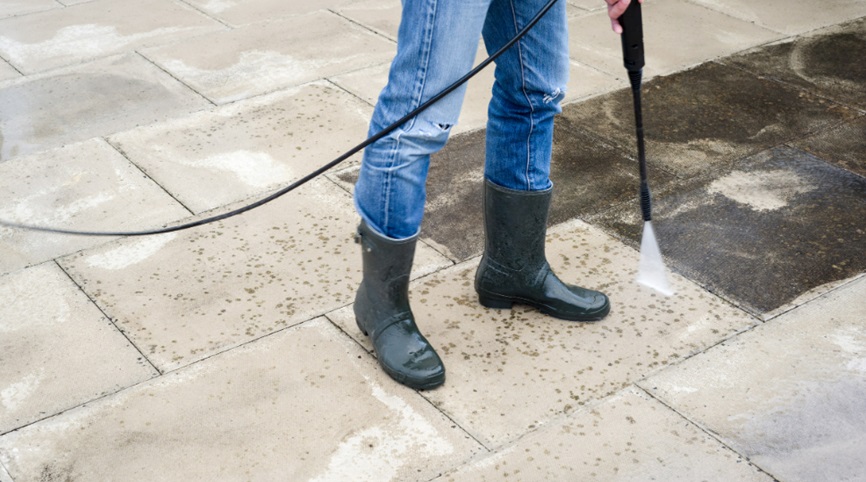Can Stress Really Cause Extra Wrinkles?

Remember when we were young and our faces were smooth, plump, and dewy, without so much as the finest fine line?
Of course, that was when we still lived at home and let our parents handle the stress of working, paying bills, mortgages, car repairs, and raising kids—and we were the kids giving them the gray hair and wrinkles.
And now it’s our turn to raise kids and handle the stress and strain of today’s busy world, where we rarely have time to stop and take a deep breath. But is it true that stress causes extra wrinkles? Is it possible that the parentheses bracketing our mouths, and the lines on our foreheads wouldn’t be there if we just knew how to handle stress better, or limit the amount of stress in our lives?
According to experts—Yes.
Stress Hormones and Inflammatory Response
There have been many studies on the effects of stress on the skin. These studies show that prolonged periods of stress triggers the inflammatory response and other receptors in the body to stimulate the production of specific hormones, including cortisol and corticosterone, and in more extreme stress—epinephrine. These are the stress hormones. In younger people, these hormones can cause increased oil production which may lead to acne breakouts.
Stress induced inflammation also causes decreased skin cell regeneration, meaning the skin’s surface may appear dull and grayish, as dead cells build up on the top layer. When the skin cell regeneration process is working efficiently, the dead skin cells are shed from the skin’s surface by the thousands each day, revealing younger cells beneath. These younger, more flexible cells flatten out on the skin’s surface to build a strong barrier to seal hydration into the skin by preventing evaporation from the surface. At the same time, they lock out environmental impurities and toxins. When this barrier is compromised by slowed skin cell regeneration, the skin’s surface loses moisture as well as strength and elasticity, which means that it doesn’t rebound as well from every expression your face makes, eventually leading to fine lines and wrinkles.
Stress Hormones vs Collagen Production
Cortisol and other stress-induced hormones also slow down collagen production in the skin by an oxidative response. Collagen is the substance that’s responsible for the structural integrity of the skin. It’s secreted by connective tissue and gives skin its strength and integrity. The fibers formed by collagen have been found to be stronger than steel when compared gram by gram.
When stress causes collagen production to slow down, the skin begins to lose its strength and firmness. This can cause drooping, looseness, and lines and wrinkles.
While nothing can replace the critical collagen produced by our own bodies at a cellular level, some of the best anti-aging creams contain a synthetic version of collagen that’s quickly absorbed by the skin cells at the skin’s surface and can help replace some of the collagen that’s depleted as the result of stress hormone production.
Collagen injected beneath the skin’s surface is a method used by clinical practitioners to smooth out lines and wrinkles by plumping them from beneath.
Epinephrine and DNA Damage
Epinephrine—also known as adrenaline—is a stress hormone that is excreted during times of extreme stress. It causes an accelerated heart rate, raised blood pressure, the rush of blood to the heart and brain, and raised blood sugar by releasing glucosamine stores from the liver. The body’s frequent or prolonged exposure to both epinephrine and cortisol has been linked to DNA damage on a cellular level. This can be evidenced in the skin’s surface by symptoms similar to those caused by sun exposure. This is because cells with damaged DNA produce free-radical cells which are unstable oxygen molecules cause oxidative cell aging. Free radicals cause cells to function at a less efficient level, resulting in decreased elasticity and inhibited cell regeneration—all of which contributes to lines, wrinkles, and sagging, as well as dullness and dryness.
While, of course, the best way to combat this type of aging is to try to eliminate or reduce the major stress-causing factors in our lives, that isn’t always possible. Fortunately, some of the signs of DNA damage related-aging, such as fine lines, wrinkles, and discoloration can be addressed by the best anti-wrinkle creams, such as those containing antioxidants like those found in vitamin C, or plant-based antioxidants from citrus and other fruits, rose hips, grape seed oil, and green tea. Antioxidants combat free radicals in the skin cells and may help to restore more normal function.
Long-term Stress and Telomere Shortening
The ends of each individual strand of our human DNA is capped off with telomeres, similar to the way shoelaces are capped off with metal or plastic caps. The ends of shoelaces are protected so they don’t become weakened and begin to fray. Similarly, if the caps at the ends of our DNA strands shorten and become compromised, the DNA strand loses its ability to function normally, causing our cells themselves to cease efficient functioning. This can be evidenced in the surface of the skin as signs of premature aging.
By examining the length of telomeres on an individual, scientists can determine that person’s biological age versus their chronological age. Meaning a person who is under significant stress for prolonged periods of time may be biologically older than their actual age. Conversely, a person who has managed to live a life of limited stress-related triggers, may have a younger biological age than their actual years of living.
Interestingly, the instances of telomere shortening seems to be triggered by specific types of prolonged stress, such as years of caring for a sick parent, spouse, or child with chronic conditions, or living as a victim of abuse during childhood or as an adult.
Stress and Its Indirect Effects on the Skin
Besides the direct skin effects caused by stress hormones, prolonged stress can also have a negative impact on our skin’s appearance by affecting how well we take care of ourselves. Periods of stress-related anxiety and depression may affect our diet by decreasing or increasing our appetite and our ability to make good food choices, and may have other lifestyle effects such as increased alcohol or drug consumption, and sleep deprivation—all of which can cause changes in our skin, and reduce our inclination to follow a good skincare regimen.
While taking care of our skin with the best skincare products available today can help reduce the outward signs of daily stress on our skin, it’s important to understand that the changes we see in our skin indicate other physical changes and compromises in our bodies that we may not be able to see.
It’s important to find ways to manage and reduce the stress in our lives, not just for our skin’s appearance, but also for our health.
Resources— MedicineNet.com, NCBI, MedicalNewsToday







